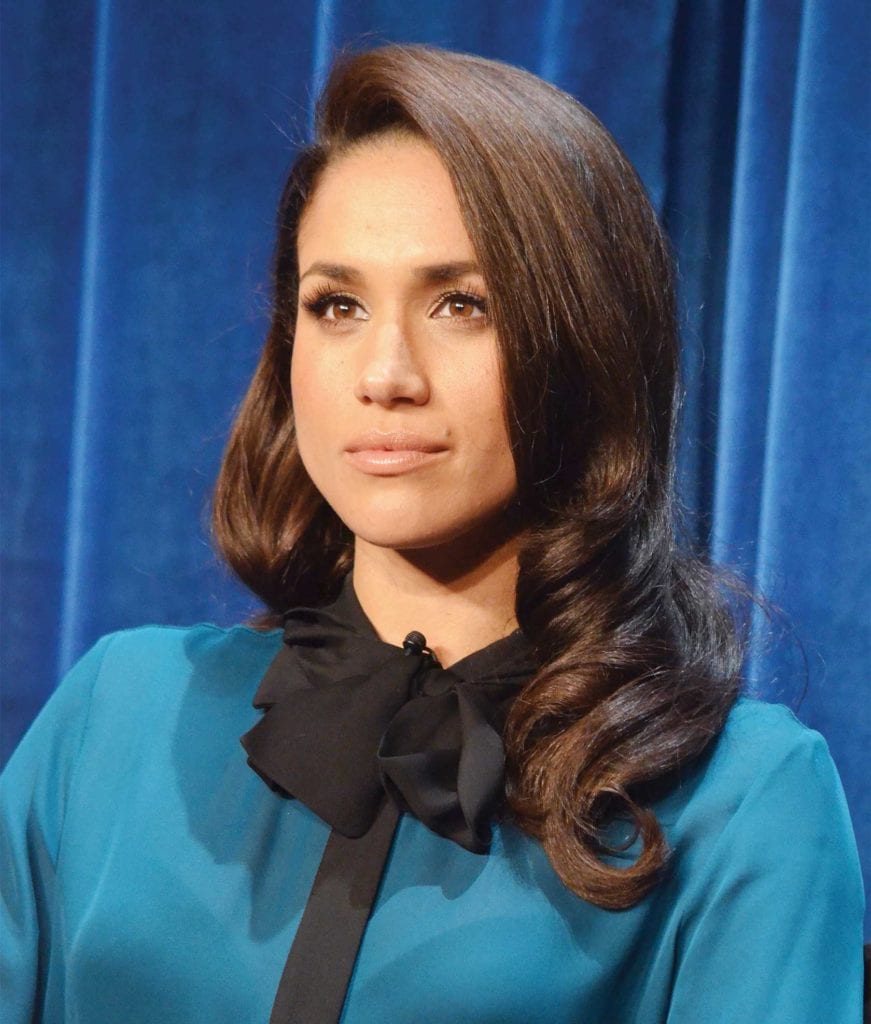
A glamorous biracial American actress falls in love with an English prince. They marry in a fairy-tale wedding at Windsor Castle. Their son becomes the seventh in the line of succession to the throne of the United Kingdom.
The union is hailed as a harbinger of better racial understanding in a country where class and race and religion have historically divided the citizenry into wary and sometimes warring camps.
What could possibly go wrong?
In front of 17 million viewers last week, Meghan Markle, the Duchess of Sussex, laid out exactly how the storybook romance took an ominous turn. Chief among the revelations was a concern voiced among the royal family about the complexion of their child, the abandonment of Markle by Buckingham Palace to the tabloid wolves, and the refusal of treatment for her depression and suicidal ideation.
American television queen Oprah Winfrey, seated in a wicker throne, drew from Markle and Prince Harry two hours of testimony to the dysfunction of the British royal family. The CBS special, long planned and highly promoted, probed hidden corners of what Markle called “The Firm,” the machine that packages the House of Windsor for public consumption.
At times holding her red-headed husband’s hand, the visibly pregnant Markle, wearing a loose-fitting long dress, recounted numerous slights and cruelties, none so shocking as open speculation among unnamed in-laws whether her son would be “too dark to represent the U.K.”
“I could never understand how it wouldn’t be seen as an added benefit,” she said, “and a reflection of the world today.”
The 2018 marriage of Markle and Harry, blessed by a gospel choir and a Black bishop, seemed headed toward a broader acceptance of the place of people of color in Britain’s long and troubled history of colonialism and slavery — and an affirmation of Black contributions to the United Kingdom’s economic and political success by citizens of the Commonwealth, which once stretched across six continents.
The impact on Harry, who long ago wore a Nazi uniform to a costume party, was dramatic, opening his eyes to the stiff-upper-lip bias embedded in English society.
“I had no idea it existed,” he told a reporter from British GQ last fall. “And then, sad as it is to say, it took me many, many years to realize it, especially then living a day or week in my wife’s shoes.”
The most obvious snub by the royal family was the denial of the title “Prince” to their son Archie and the armed security that comes with it.
But there was much more that sealed their decision to renounce their royal appointments and privileges and income. Markle was virulently attacked by the British press with little or no defense from the palace.
One incident was particularly telling — an occasion where it was reported that Markle made her sister-in-law, Kate Middleton, cry over a bridesmaid’s dress. In fact, it was the other way around, but The Firm wouldn’t correct the record.
“They were willing to lie to protect other members of the family, but they weren’t willing to tell the truth to protect me and my husband,” said Markle.
Unrelenting negative press attention drove Markle to think about killing herself.
“I was ashamed to have to admit it to Harry,” she told Winfrey. “I knew that if I didn’t say it, I would do it. I just didn’t want to be alive anymore.”
But when she asked a senior royal about seeking treatment, she was told it was impossible because it “wouldn’t be good for the institution.”
To those with little patience for stories of inherited titles and weekend shoots on distant estates built from the labor of toothless peasants, Markle’s narrative as the Rosa Parks of the Royals draws scant sympathy, coming, as it does, as she and her husband launch their philanthropic brand in their new homeland.
But the impact at the time of a broader racial reckoning in Britain, America and around the world is unmistakable.
“It really chimed with me, the idea that there’s some kind of ceiling on what one can achieve,” Adam Hamdy, a London novelist born of a white mother and a Black father, told the New York Times. “The idea that there’s someone who says I can’t be a prince, that I can’t be a princess, that there’s some inherent flaw or defect because of the color of my skin. It’s deeply, deeply offensive.”







